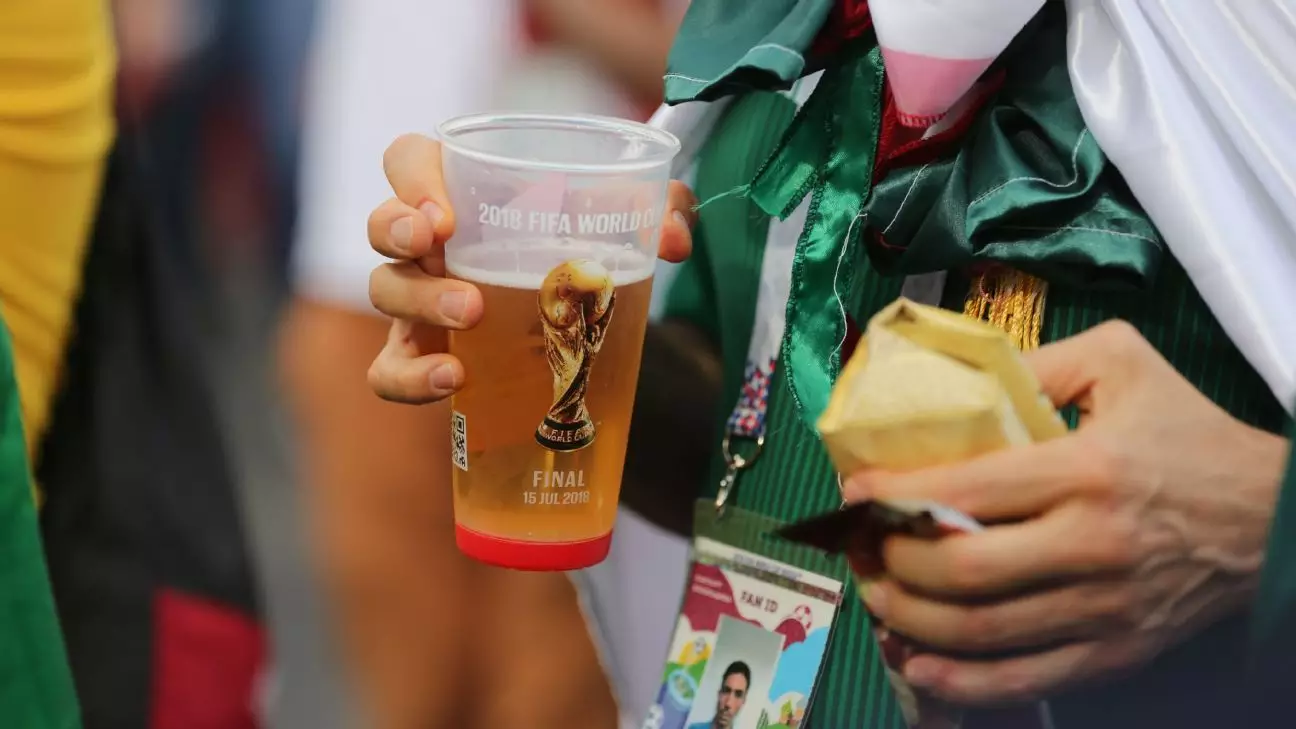The announcement by the Saudi Arabian ambassador to the UK regarding the prohibition of alcohol during the 2034 World Cup has stirred considerable conversation about cultural boundaries in modern global events. The decision is rooted in presenting and respecting Saudi Arabia’s traditional values and social customs. It reflects the nation’s commitment to staying aligned with its Islamic heritage, which disallows the consumption of alcohol, and calls into question the adaptability of fan experiences in multi-cultural, international sporting spectacles.
Interestingly, the absence of alcohol sales is framed by the ambassador, Prince Khalid bin Bandar Al Saud, as an opportunity for enjoyment that does not hinge on alcohol consumption. This assertion sparks dialogue concerning the expectations of international visitors and whether the lack of alcohol may deter fans from fully engaging or participating in the festivities. The ambassador’s light-hearted comments on cultural adaptability, questioning, “you can’t live without a drink?” imply a perspective that seeks to normalize the absence of alcohol while inviting visitors to appreciate the event beyond their typical comforts.
This announcement harkens back to the 2022 World Cup in Qatar, where alcohol was initially allowed in certain settings but faced restrictions as the tournament approached. Despite the accommodating gestures made by Qatar to facilitate fan experience through designated areas for alcohol consumption, it showcased the complexities faced by nations navigating between their traditional norms and contemporary global expectations. Saudi Arabia risks repeating these tensions.
Moreover, the reaction by fans and stakeholders will be crucial in interpreting Saudi Arabia’s hosting of the World Cup. Critics argue that limiting alcohol in a festival known for bringing people together could restrict interaction and the vibrancy traditionally associated with football culture. The challenge lies in finding a balance where cultural authenticity does not alienate international visitors.
Beyond alcohol restrictions, the human rights implications of hosting such a prominent event in Saudi Arabia cannot be ignored. Human rights groups, such as Amnesty International, have raised alarms concerning the treatment of workers and the lack of protection for LGBTQIA+ individuals in the country. Questions linger about the safety and acceptance of various demographic groups, a topic the ambassador attempted to address by stating the event as a “world event.”
While expressing eagerness to welcome everyone, the underlying tension remains palpable. How genuine is Saudi Arabia’s commitment to inclusivity when existential risks exist for certain groups? The ambassador’s remarks appear to downplay the very real concerns that potential attendees may have.
Ultimately, the 2034 World Cup in Saudi Arabia presents a watershed moment, not only for the nation but for the global sporting community. As the world becomes increasingly interconnected, the challenge will be to create events that celebrate diversity while respecting cultural boundaries. The success of this World Cup will be measured not just in athletic prowess but in the ability to navigate and honor these complexities, ensuring a genuinely inclusive atmosphere that upholds the spirit of international camaraderie.

